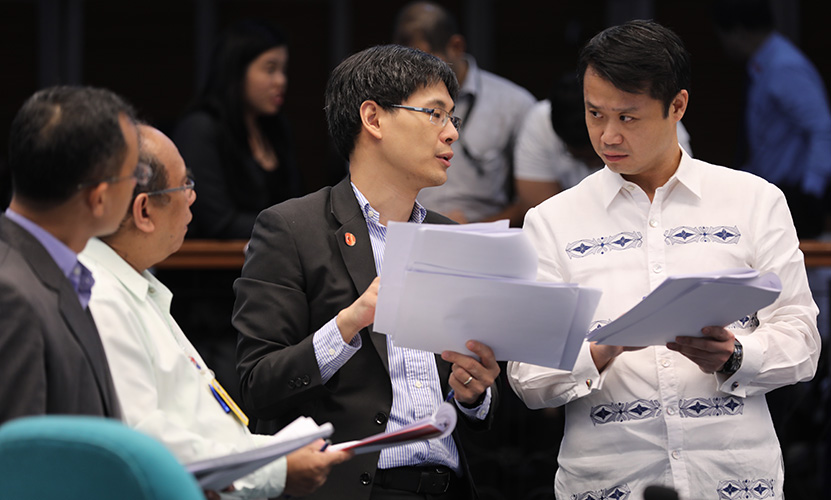
Senator Win Gatchalian did not mince words as he reprimanded government representatives for their failure to fully implement the unconditional cash transfer (UCT) program which is meant to shield low-income Filipinos from price increases due to the Tax Reform for Acceleration and Inclusion (TRAIN) law.
“This is an issue for us senators. We all know dispensing 200 pesos to 10 million households will be a big challenge, but we were assured that by 2018, all beneficiaries would receive their part. My point here is we make decisions based on the information and assurance you are giving us. If you can’t keep your word, then we may have had arrived at a different decision. Now, you are telling us that you are to complete this by September?” said Gatchalian, the chair of the Senate Committee on Economic Affairs, during the committee’s second public hearing on TRAIN-driven inflation and potential mitigating measures.
Gatchalian was referring to the guarantee made by the Department of Finance during the Senate deliberations on TRAIN last year, assuring the senator that the PHP 24 billion UCT program would be in full swing by the January 1, 2018, the effectivity date of the TRAIN Law.
However, the Department of Social Welfare and Development (DSWD) said at the hearing that the government has only been able to distribute aid to around 4 million households. The new target is to complete disbursement to the remaining 6 million households by the end of September.
“As of the moment, DSWD is looking for ways and means to cut down the payouts. However, we have physical constraints that we have to consider. One, for example, there are areas that are hard to reach, and transporting money – physical money – to the nearest Landbank branch takes a lot of logistics planning. And this is something that we need to consider,” explained Noel Macalalad, DSWD Assistant Secretary for Policy and Plans.
The PHP 24 billion allotment for UCT is broken down to three beneficiary programs: the Pantawid Pamilyang Pilipino Program (4.4 million households), the Social Pension Program (3 million households) and Listahahan Program (2.6 million households).
In an interview after the hearing, Gatchalian said that the PHP 200 per household allotment is insufficient to cushion the poorest 30% of the population, as prices of diesel and gasoline products are expected to spike by 2019 due to new excise taxes imposed by TRAIN.
“I’m thinking of adjusting it from 200 [pesos] to about 450 to cover others. If you look at the poorest 30% of our population, their biggest consumption, 70% of their expenditure, is on food. Inflation is at its peak. This means, you have to cover the increase in food prices of the lower 30% of the population,” the senator explained.


